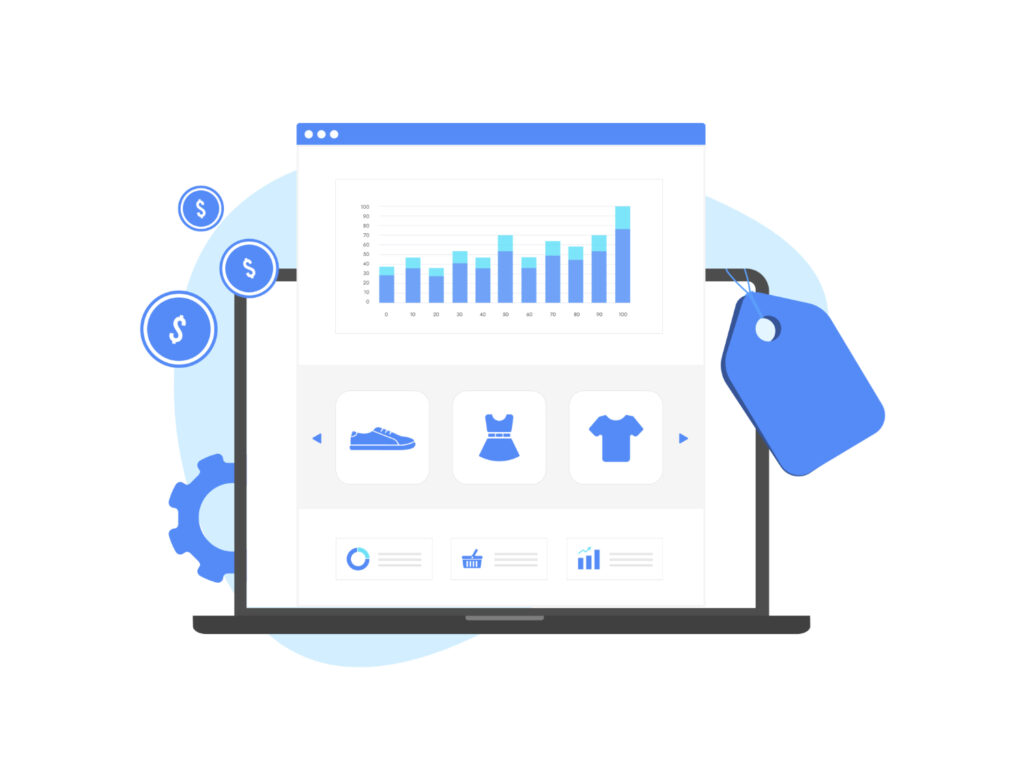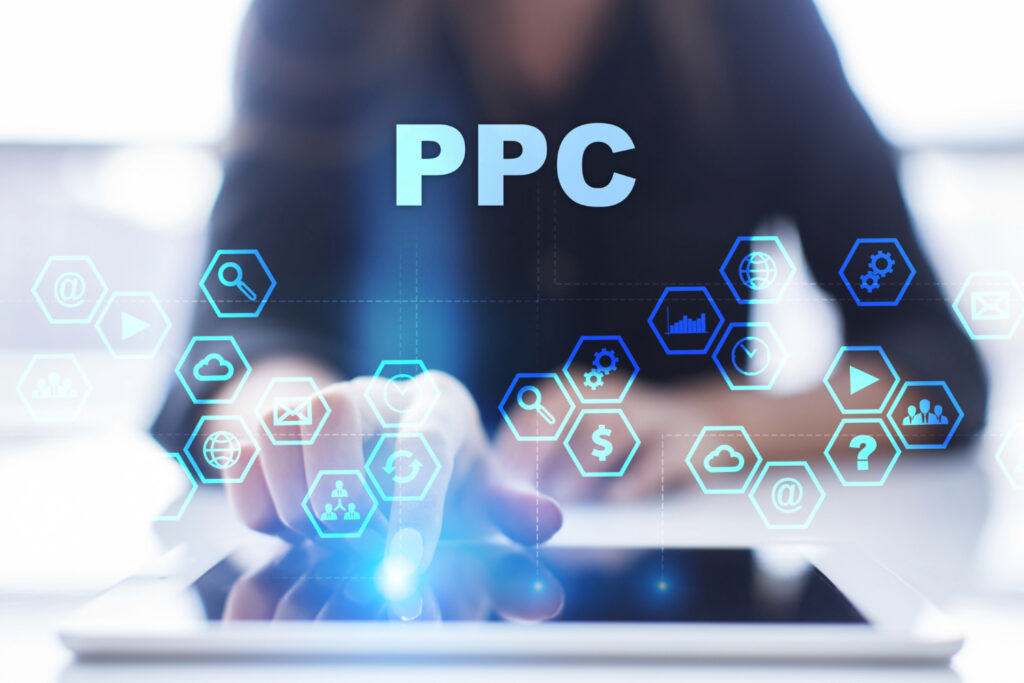In today’s fast-paced digital landscape, staying ahead of the marketing curve is crucial for any business looking to thrive. That’s where AI digital marketing tools come into play. They’re not just a trend; they’re revolutionizing the way we approach marketing strategies, making it easier to connect with our target audience in a more personalized and efficient manner.
I’ve explored a myriad of these tools, and I’m here to share how they can transform your digital marketing efforts. From automating mundane tasks to providing deep insights into customer behavior, AI tools are the secret weapon in a marketer’s arsenal. Let’s dive into how these innovative solutions can elevate your marketing game.
What are AI digital marketing tools?
In my journey to stay ahead of the marketing curve, I’ve delved deep into the world of AI digital marketing tools. These are software solutions or platforms that leverage artificial intelligence to automate, enhance, and personalize various aspects of digital marketing. From content creation and social media management to customer segmentation and predictive analysis, these tools are transforming how marketers interact with their audiences.
Benefits of Using AI Digital Marketing Tools
The adoption of AI in digital marketing brings a myriad of benefits that I’ve witnessed firsthand:
- Efficiency and Automation: Tasks that once took hours, like data analysis or content curation, are now accomplished in minutes. This automation allows marketers to focus on strategy and creativity.
- Personalized Customer Experiences: AI tools analyze data to deliver personalized content and recommendations to users, improving engagement and conversion rates.
- Data-Driven Insights: With AI’s ability to process and analyze vast amounts of data, marketers can gain deeper insights into customer behavior and preferences. This leads to more informed decision-making and strategy development.
- Cost Reduction: By automating repetitive tasks, these tools can significantly reduce labor costs and increase ROI.
Challenges of Using AI Digital Marketing Tools
Despite their benefits, integrating AI into digital marketing isn’t without its challenges:
- Complexity and Integration: Some AI tools can be complex to set up and may require integration with existing systems, which can be a daunting task.
- Skill Gap: There’s often a learning curve associated with using AI tools effectively. Marketers may need to acquire new skills or hire experts.
- Data Privacy and Security: With the increased use of customer data comes the responsibility of ensuring privacy and security, which is a growing concern among consumers.
- Dependence on Data Quality: AI tools are only as good as the data they’re fed. Poor quality data can lead to inaccurate insights and decisions.
Navigating these challenges requires a strategic approach and a willingness to adapt. By overcoming these obstacles, marketers can unlock the full potential of AI in digital marketing, leading to innovative strategies and improved outcomes.
Popular AI digital marketing tools
Navigating through the sea of AI digital marketing tools available today, I’ve identified some of the most impactful and popular ones. These tools are not just trends; they’re transforming the way we connect with our audience, personalize marketing efforts, and optimize for the best results. Let’s dive into the categories that are making a significant difference in the marketing landscape.
AI-Powered Social Media Management Tools
Social media platforms are bustling with activity, making it a challenge to keep up with the pace. That’s where AI-powered social media management tools come in. Hootsuite Insights and Sprout Social are stellar examples. They go beyond scheduling posts; they offer deep insights into social media trends, audience behavior, and even sentiment analysis. I’ve found that leveraging these tools can drastically improve engagement rates by pinpointing the best times to post and identifying trending topics that resonate with my target audience.
AI-Based Content Creation and Optimization Tools
Content is king in the digital marketing world, but creating content that stands out and performs well can be daunting. AI-based content creation and optimization tools like MarketMuse and Grammarly have been game-changers for me. MarketMuse uses AI to analyze my content and suggests improvements to enhance SEO performance, making sure I rank high in search engine results. Meanwhile, Grammarly ensures my content is not only free from grammatical errors but also suggests style improvements to make my writing more engaging. These tools have become indispensable for creating high-quality, SEO-friendly content efficiently.
AI-Driven Customer Segmentation and Targeting Tools
Understanding and segmenting your audience is crucial for delivering personalized marketing messages. AI-driven tools such as HubSpot and Salesforce Einstein take customer segmentation and targeting to a new level. They analyze vast amounts of data to identify patterns and segments in customer behavior, preferences, and demographics. This enables me to tailor my marketing efforts more precisely, targeting the right audience with the right message at the right time. The precision that these tools offer not only improves conversion rates but also enhances customer satisfaction by providing them with content and offers that are relevant to their needs and interests.
Incorporating these AI digital marketing tools into my strategy has not only streamlined my workflow but has also provided me with insights and capabilities that would be impossible to achieve manually. The key is to choose the tools that best fit your specific marketing goals and audience.
How to choose the right AI digital marketing tools?
Assess Your Marketing Goals and Needs
When I dive into the vast ocean of AI digital marketing tools, the first thing I always do is take a step back and scrutinize my marketing goals and needs. It’s crucial to have a clear understanding of what you want to achieve. Whether it’s increasing brand awareness, boosting engagement, driving sales, or improving customer service, each goal might require a different set of tools. For instance, if content creation is a priority, tools like MarketMuse or Grammarly could be game-changers. Meanwhile, for enhancing customer service, AI chatbots could take your customer interaction to the next level. Identifying your primary marketing objectives is the cornerstone of selecting the most effective AI tools that align with your strategic goals.
Consider Your Budget and Resources
Budget is often the elephant in the room, but addressing it upfront can save a lot of headaches down the line. AI digital marketing tools come with a range of price tags, from free versions with limited functionality to premium options that offer more sophisticated features. It’s essential to weigh the cost against the potential return on investment (ROI). But it’s not just about the money. You also need to consider the human resources required to manage these tools. Some tools might offer powerful features but require a steep learning curve or ongoing management, which could strain your team’s capacity. Balancing the cost and the available resources within your organization is key to choosing tools that you can not only afford but effectively utilize.
Evaluate the Tool’s Features and Integrations
Once I’ve set my goals and budget, the next step is to dive deeper into the features and integrations of potential AI digital marketing tools. It’s easy to get dazzled by a long list of features, but I always ask myself, “Which of these do I really need?” The tool should not only fulfil my current needs but also have the capacity to scale with my marketing efforts. Integration is another critical aspect. The ability of the AI tool to seamlessly integrate with other software and tools I’m already using (such as CRM systems or analytics platforms) can significantly enhance efficiency and streamline workflows. Moreover, I look for tools that provide actionable insights and analytics, as these can offer invaluable guidance for adjusting strategies and achieving better results. Ultimately, the right tool should enrich my marketing ecosystem, not complicate it.
Implementing AI digital marketing tools successfully
Incorporating AI tools into your digital marketing strategy isn’t just about selecting the right technology; it’s about ensuring they are integrated and utilized effectively. In my journey of integrating AI into marketing strategies, I’ve learned some crucial steps to ensure success.
Define Clear Objectives and KPIs
The first step in successfully implementing AI digital marketing tools is to Define clear objectives and KPIs. Without a clear understanding of what you aim to achieve, it’s challenging to measure success or the impact of your AI tools. My approach starts with identifying specific goals – whether it’s increasing engagement rates, boosting SEO rankings, or enhancing customer segmentation.
Once the objectives are set, the next step is establishing Key Performance Indicators (KPIs) to track and measure success. These indicators help in evaluating whether the AI tools are delivering the promised benefits. For instance, if my goal is to improve customer engagement, my KPIs might include metrics like click-through rates, time spent on site, and conversion rates.
Ensure Data Accuracy and Quality
Data is the lifeblood of AI systems. For AI tools to function optimally, they require access to accurate and high-quality data. I’ve learned that the effectiveness of any AI-powered digital marketing tool heavily relies on the data it’s fed. Incorrect or low-quality data can lead to poorly targeted campaigns, inaccurate customer insights, and ultimately, wasted resources.
To avoid these pitfalls, I always prioritize data hygiene practices. This involves regularly cleaning data, removing duplicates, and ensuring data consistency across different platforms. More so, leveraging data validation tools ensures that the AI systems have the most accurate and current data to work with.
Train and Upskill Your Team for AI Adoption
One of the most overlooked aspects of implementing AI in digital marketing is the human element. AI tools are sophisticated and can significantly enhance marketing strategies, but they require knowledgeable users to reach their full potential. Training and upskilling my team in AI adoption has been essential for success.
This step involves not only training on how to use the specific tools but also understanding the principles behind AI and how it can be leveraged for marketing purposes. I encourage ongoing learning and curiosity amongst my team, whether through formal training programs, workshops, or self-learning resources. It’s crucial for everyone involved to comprehend the capabilities and limitations of AI tools, enhancing their strategic use in our digital marketing efforts.
By defining clear objectives and KPIs, ensuring data accuracy and quality, and training and upskilling your team, you set the foundation for successful AI tool implementation. These steps have been pivotal in my journey with AI digital marketing tools, transforming not just marketing strategies, but also how teams interact with technology in pursuit of marketing excellence.
Conclusion
Embracing AI digital marketing tools has become a game-changer for me and countless others in the marketing field. By integrating these innovative solutions into our strategies, we’ve seen firsthand how they not only streamline operations but also elevate the quality of our engagements and insights. From enhancing content creation to fine-tuning audience targeting, the benefits are undeniable. It’s about leveraging the right tools to meet our unique marketing objectives effectively and efficiently. And while the journey to fully integrating AI into our workflows may require a thoughtful assessment of our goals, resources, and the capabilities of each tool, the payoff in terms of ROI and enhanced marketing precision is well worth the effort. As we move forward, it’s clear that the future of marketing lies in harnessing the power of AI to not just reach but truly connect with our audiences in more meaningful ways.
Frequently Asked Questions
What is the role of AI digital marketing tools in today’s marketing strategies?
AI digital marketing tools play a crucial role in revolutionizing marketing strategies by automating tasks, personalizing customer experiences, and providing data-driven insights. These tools make it easier to connect with the target audience efficiently and effectively.
How do AI digital marketing tools transform marketing efforts?
AI tools transform marketing efforts by automating repetitive tasks, offering insights into customer behavior, enhancing efficiency, and enabling personalized customer interactions. This allows for more focused and successful marketing strategies.
What are the benefits of using AI digital marketing tools?
The benefits include increased efficiency and automation, personalized customer experiences, data-driven insights for better decision-making, and cost reduction in marketing efforts.
Can you name some popular AI digital marketing tools?
Popular tools include Hootsuite Insights for social media management, Sprout Social for engagement, MarketMuse for content optimization, Grammarly for content creation, HubSpot for inbound marketing, and Salesforce Einstein for customer segmentation.
How do AI tools improve customer targeting in digital marketing?
AI tools enhance customer targeting by analyzing vast amounts of data to identify patterns and preferences. This enables precise segmentation and targeting, leading to more effective and personalized marketing campaigns.
What should be considered when choosing AI digital marketing tools?
When selecting AI tools, consider your marketing goals, budget, the tool’s features and integrations, and potential ROI. Assessing these factors will help you choose tools that align with your strategic objectives and resources.
How do you successfully implement AI digital marketing tools?
Successful implementation involves defining clear objectives and KPIs, ensuring data accuracy and quality, and providing training and upskilling for your team. These steps are vital for leveraging AI tools effectively in marketing strategies.



